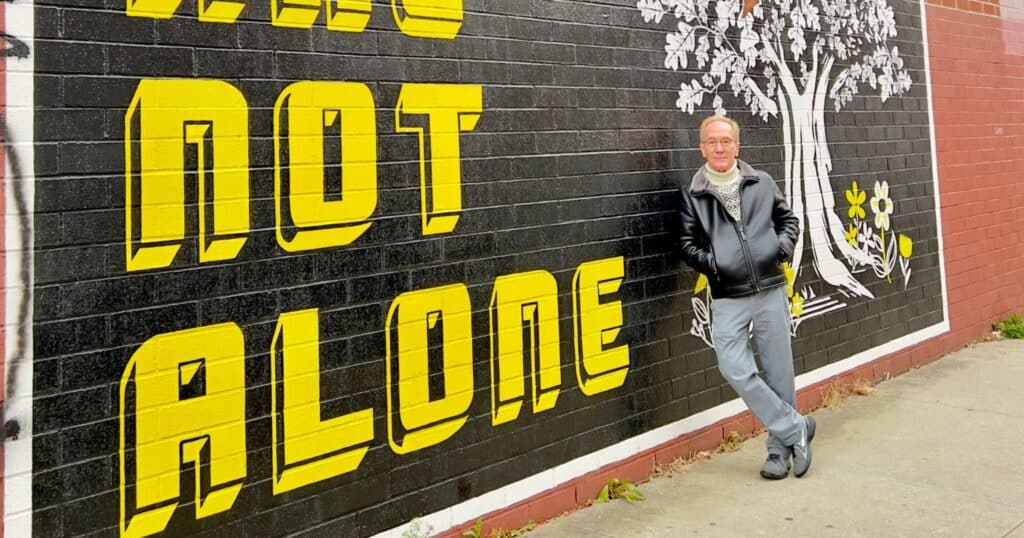Author interview: UCC pastor explains how loneliness is ‘an opportunity for transformation’
What if loneliness isn’t a social problem to be solved but rather an opportunity for spiritual transformation?
The Rev. Dwight Wolter is the pastor of the Congregational Church of Patchogue, New York, and the author of The Gospel of Loneliness, released last year through The Pilgrim Press. In his book, Wolter explores loneliness as it manifests in society, literature, music and even the Bible.
But Wolter hasn’t been content to leave this exploration of loneliness to the pages of his book. Instead, he’s been creating interactive experiences that open the door to a plethora of expressions of loneliness. He’s led webinars and interfaith panels on loneliness. And last month, his church hosted “A Festival of Loneliness,” where participants encountered loneliness represented though art, dance, music and more.
What Wolter has discovered is that loneliness isn’t something to be “eradicated” but understood as a key element of the human condition.
Below is an interview with Wolter on his understanding of loneliness, its social stigma and how he has explored and even embraced loneliness. The interview has been edited for clarity and length.
How do you define “loneliness?” Based on your description of it, how do people experience loneliness?
DW: Loneliness is a sign of the powerful presence of hope and love. You are not lonely for what you do not care deeply about. Loneliness is primal energy that has been a part of us since the creation of the world. Loneliness is either dormant or active. It cannot be created or destroyed.
It can, however, be transformed into such things as anger, depression, isolation and poor health. It can also be transformed into empathy, creativity, community-building and fun. The word “loneliness” is not the same as solitude or isolation. This is explored in my latest book, The Gospel of Loneliness.
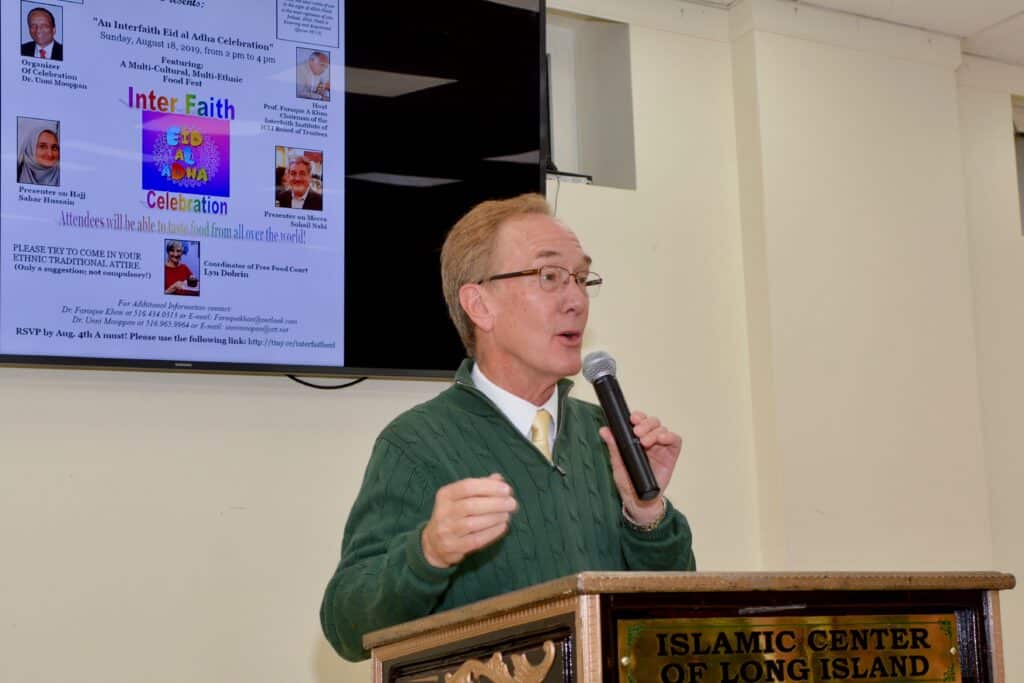
The U.S. surgeon general referred last year to the “epidemic of loneliness and isolation.” Why do you think many people are struggling with loneliness right now?
DW: The word “epidemic” brings much-needed attention to loneliness, but it also brings stigma. Loneliness is not COVID. Pathologizing loneliness by declaring an epidemic, right after a pandemic, risks driving lonely people even further into themselves and away from relief. Loneliness is stigmatized as if it were a sin, weakness or illness. If there was an outbreak of joy in the world, would we declare an epidemic of joy?
The pandemic revealed and, in some cases, intensified loneliness; but it did not create it, nor will it end it. People throughout the world right now are living in war, displaced from their homeland, incarcerated, oppressed, marginalized, dislocated from family. Some are climate refugees, wayfarers, sojourners, victims and hostages. Many are lonely for normalcy, purpose and safety. Some are lonely for the “good old days” without even knowing what that means.
People might struggle less with loneliness if it were reframed as a revelation waiting to be explored, rather than an epidemic needing to be eradicated.
You’ve mentioned that aging and addiction are factors that influence and can increase feelings of loneliness. Can you explain how aging and addiction each affect loneliness?
DW: Aging begins at birth. For those blessed with longevity, aging means separation from family, personal health, questioning their purpose once the kids are grown, the job is gone, and friends and family are passing away. Churches are closing, coffers and members are dwindling. Those who remain are few and elderly. Departments of aging are doing good work with elderly persons. But not nearly enough is being done in churches to directly address loneliness in the pulpit, the pew and the community.
There is nothing like the loneliness of addiction. It isolates, alienates and dehydrates the soul. It rips people from job, family, health, community, hope and much more. Drug overdoses spiked during the pandemic. But even in such trying times, recovery from addiction is about healing, sacrifice, service to others and spiritual transformation. That said, loneliness is often cited as an ongoing issue for many people in recovery.

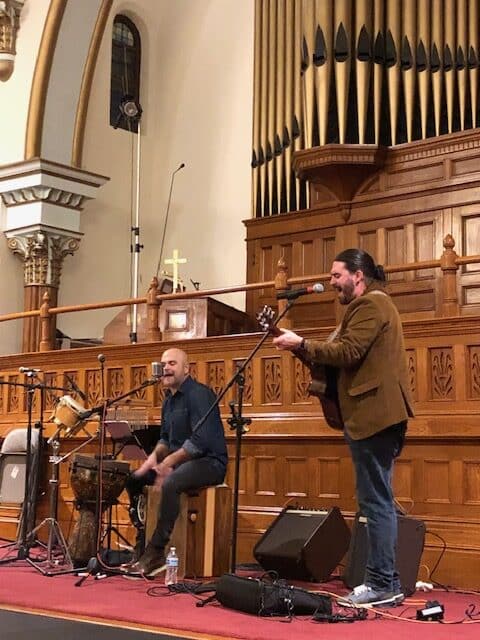
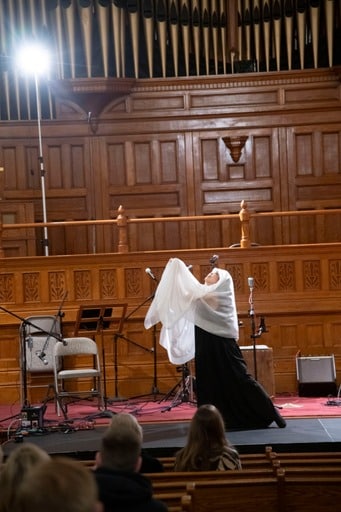
How can UCC clergy and congregations address loneliness in their communities and in themselves? What are some practical steps people can take — such as therapy, community building, etc.?
DW: I was surprised to learn how under-prepared seminary students and chaplains are to deal with loneliness. Educational and theological institutions would be doing us a great service by becoming more proactive in directly addressing the acute loneliness that seems inherent in lay and clergy ministry.
Pastors are the most reluctant to address their own or the congregation’s loneliness. Some pastors mention in webinars, Zoom meetings and other places where they can maintain some anonymity that a “confession of loneliness” would signal personal weakness or a lack of faith and fortitude. Afterall, if you have God, Jesus, scripture, fellowship, bowling and potlucks, there must be something wrong with you if you are lonely.
Congregants may fear that admitting and addressing loneliness will make them even lonelier. They don’t want to open the can of worms. Sometimes psychotherapy, medication and intervention are beneficial. Sometimes encouraging people to join fellowship groups, Bible study, volunteer opportunities and other social stimuli can help. But we know the expression about being lonely in a crowd. If fellowship alone was the answer to loneliness, we would have figured it out 2,000-plus years ago.
How are you taking what you’ve learned and applying it to your ministry?
DW: The way I address the “epidemic of loneliness” is to reframe loneliness from a problem to be solved into an opportunity for transformation. If I give a sermon or a talk about loneliness, I do not begin with my own or a congregant’s loneliness. I talk about loneliness outside of you or me. I address loneliness in the Bible and ask people to consider whether God created humankind in God’s own image because God was lonely?
Imagine a lonely God. Imagine the loneliness of Adam and Eve for Eden and for their deceased child. I mention the loneliness of leadership, such as Noah who shut the gates of the ark on his neighbors and friends. Was it only God in whom he could confide his pressing loneliness? Why? Is loneliness taboo for a person responding dutifully to the call of God? I ask people if they hear loneliness in Jesus’ cry from the cross: “Why have you forsaken me?”


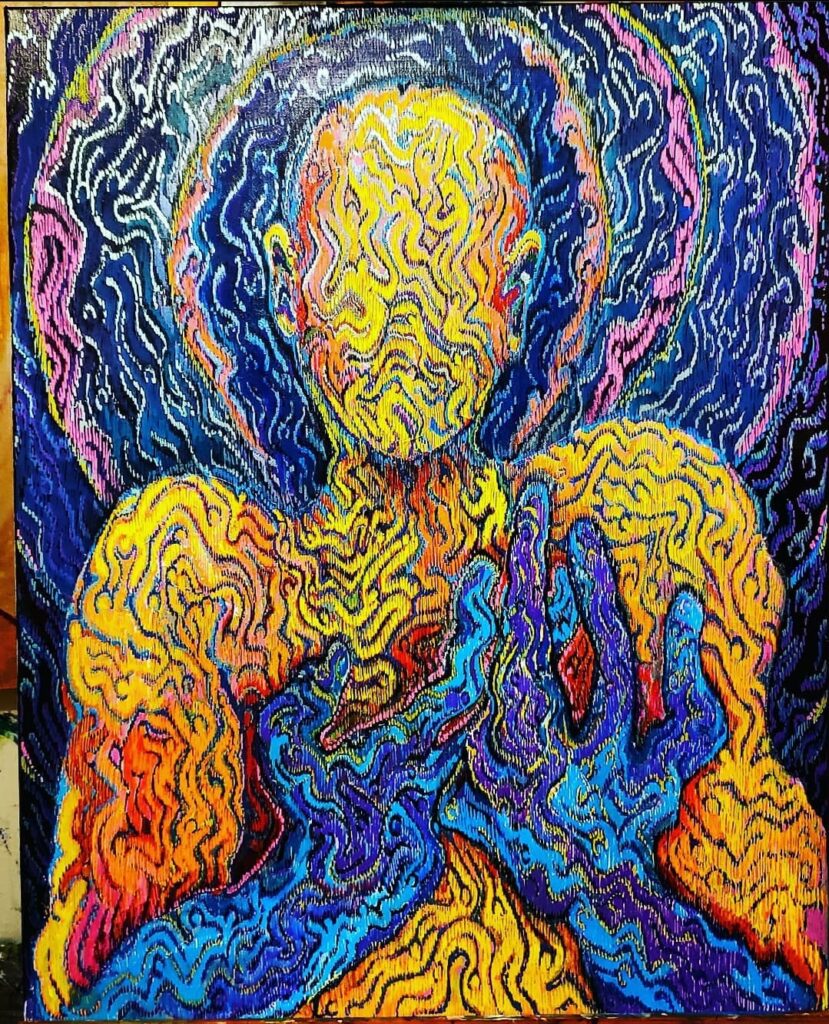
You recently put together “A Festival of Loneliness” at your church. What did you hope people would gain from it, and what, if anything, shifted your perspective on loneliness because of the gathering?
DW: I created “A Festival of Loneliness” as an opportunity to:
1) See loneliness in art with the “Museum of Loneliness,” in which 21 artists exhibited their work in the church. As artists dropped off their work, I asked each why they chose to submit work to a show on loneliness, in a church, in the dead of winter, on the night of an important football playoff game. Some of the stories I heard were heart-breaking. Some were triumphant. Some were heart-breaking and triumphant. Attendees could see loneliness in the paintings, in the painters and then more easily in themselves. They could speak of loneliness in others that they might not be able to enunciate in themselves.
2) “The Dance of Loneliness” was performed by a young choreographer from China who knew virtually nothing about Christianity and churches. Her dance revealed the bodily process of struggling with loneliness and its transformation into beauty, the way a chrysalis becomes a butterfly. The DNA of loneliness lives in the body.
3) “The Greatest Loneliness Songs in the World” was a live concert with five groups showing the creativity of lonely songwriters crafting beautiful songs that would never have become musical classics without loneliness. The audience listened to their story being sung back to them.
“The Festival of Loneliness” was heralded in the press and from the stage by performers as evidence that we care deeply about advocacy on behalf of people coping with situations such as loneliness. Many performers were moved to confide to the audience of their own loneliness, how much of it they see in society, and how grateful they were to take part in this unusual and deeply meaningful event.
Content on ucc.org is copyrighted by the National Setting of the United Church of Christ and may be only shared according to the guidelines outlined here.
Related News
A Moment of Silence
The weekend news was alarming. Two students shot and killed with 9 injured at Brown University...
Read MoreIn hope-filled worship service, UCC and United Church of Canada celebrate full communion past and future
On Saturday, Dec. 13, many from the United Church of Christ (UCC) and the United Church of...
Read More‘A Gift of God to the World:’ Christmas greetings from the General Minister and President
As Christmas quickly approaches, UCC General Minister and President/CEO the Rev. Karen Georgia...
Read More